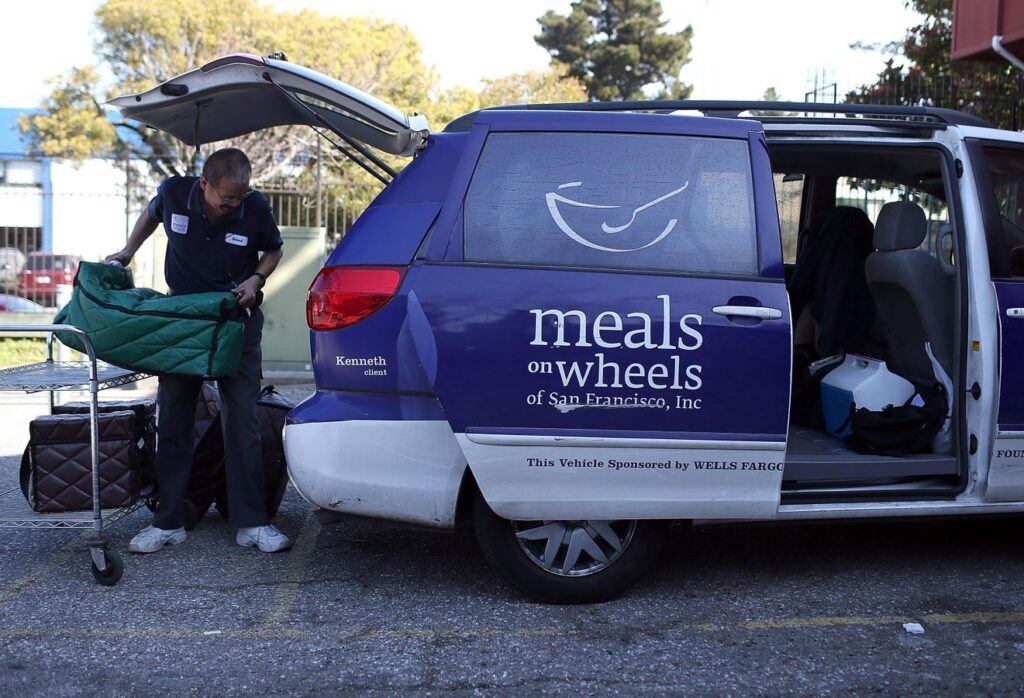The Trump Administration is abolishing the office that manages and coordinates most federal programs for older adults and younger people with disabilities who live at home. At the same time, it is restructuring two offices that provide independent evaluation and analysis of patient safety and long-term care.
The elimination of the Administration for Community Living (ACL) will be a major blow to older adults and people with disabilities. It manages most federal supports, other than Medicaid and subsidized housing, for older adults living in non-institutional settings.
A Broader Assault
“This is part of a bigger assault on older adults,” says Alison Barkoff, who led ACL during the Biden Administration. “ACL serves as a hub for programs that benefit older adults and people with disabilities.”
Many programs ACL oversees are funded through the Older Americans Act, the umbrella law that includes Meals on Wheels, adult day, area agencies on aging, falls and elder abuse prevention, and respite care.
ACL also manages the RAISE Act that aims to coordinate all federal programs that support family caregivers. That effort includes creation of a national strategy to support those families. (Full disclosure: I serve on an advisory committee to one of those initiatives).
Abolishing ACL won’t end funding for Older Americans Act programs or RAISE, though Congress could cut their budgets later this year as part of broader Republican effort to cut domestic spending.
The bigger immediate problem will be that those older adults and people with disabilities who are not on Medicaid will lose critical advocates within the federal government. Programs that assist these vulnerable populations may take a back seat as HHS sets priorities in the Trump Administration.
“Older adults and people with disabilities are losing their champions,” says one person familiar with ACL.
Aging And Disability
Breaking up the office also will end efforts to combine federal programs for older adults and younger people with disabilities. Historically, they operated separately, resulting in inefficient program duplication and deeply dividing advocacy groups.
In 2012, HHS Secretary Kathleen Sebelius created ACL by merging the Administration on Aging, the Office on Disability, and the Administration on Developmental Disabilities into a single unit. Her idea: Support people living independently at home, no matter the cause of their disability.
ACL did not fully resolve conflicts among the disability and aging communities but it helped limit them. And, as Barkoff told me, “It created synergies and efficiencies among federal programs.”
Who Will Do The Work?
Under Trump’s plan, ACL will be broken up and its work divided among three different offices at HHS: the Administration for Children and Families (ACF), the Assistant Secretary for Planning and Evaluation (ASPE), and Centers for Medicare and Medicaid Services (CMS).
The announcement did not say how ACL’s duties would be split up. But one source expects ACF likely will inherit responsibility for disability programs. The problem is that ACF focuses almost entirely on the needs of children and is unlikely to make people with disabilities a priority.
Many programs for older adults may be shifted to CMS. This would create a similar problem: While Medicare staffers know about the health needs of seniors and Medicaid staffers are very familiar with long-term care of low-income people, neither has a background in social supports for older adults who have substantial personal care needs but are not poor.
Staffs at Medicare and Medicaid already struggle to work together. Bringing an entirely new set of responsibilities into CMS likely will make funding for important services less efficient, not more.
Research Cuts
The other major change that could impact older adults: The Administration will eliminate two important research shops at HHS, the office of Assistant Secretary for Planning and Evaluation and Agency for Healthcare Research and Quality. They’d be merged into a new Office of Strategy.
ASPE evaluates long-term care needs and aging services programs. AHRQ, which already was targeted for deep staff cuts, does important research in patient safety and quality, calling out areas of concern and best practice solutions. Both are highly regarded for their research quality and independence.
The Trump Administration already has curbed independent research at other agencies, including the Department of Education and the IRS. Experts fear the same will happen at HHS.
Helping Those With Chronic Conditions
All these decisions were announced by Robert F Kennedy Jr., Trump’s Secretary of HHS. It was part of a broader initiative to cut a total of 20,000 workers at the department, which includes Medicare, Medicaid, the Centers for Disease Control, the National Institutes of Health, and the Food and Drug Administration.
Earlier this year, the Trump Administration fired about 10 percent of ACL’s 200-person staff, though that decision has been challenged in court. Most of those staffers had been on the job for less than a year.
Oddly, Kennedy defended the changes by insisting he would focus HHS on improving the quality of care for people with chronic conditions. But providing much-needed social support often is the best way to enhance the quality of life for those with chronic disease. And killing the office that manages much of that assistance will hurt, not help, those who rely on these programs.
Read the full article here

